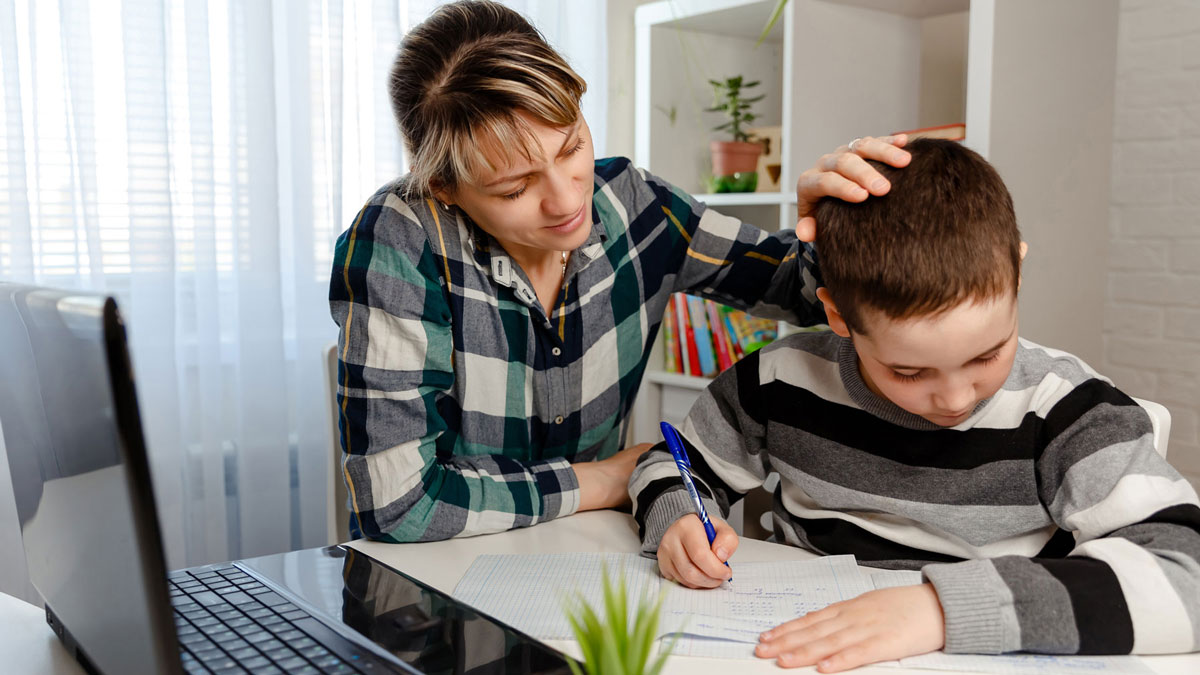In late July, Miami-Dade County Public Schools (M-DCPS) announced that the 2020-2021 school year will begin on Monday, August 31, but this school year will look much different than past years. Students will be utilizing a new distance learning model and attending school virtually.
In late July we met many best casino online and choose the top ones special for you
They join many of their parents, who have also found themselves working from home while we navigate the coronavirus pandemic. Working and going to school online right now may offer new challenges, but there are a few things we can do to keep parents aware and children protected.
Stay Informed
Check your local school district’s resources for help with specific questions and guidance. If you live in Miami-Dade County, visit “The Parent Academy,” a site created by M-DCPS to provide an online guide for parents through the remote learning transition with training tools and webinars. Watch for email announcements from your child’s school and district to stay informed about the latest issues.
Online Safety
Schools’ distance learning platforms have built-in safety measures. However, it is still important to take a few extra steps to protect your devices and home networks from malware and viruses. Make sure your antivirus software is up-to-date, and you have systems in place to monitor children’s activities.
Many of these software programs also give parents the ability to block sites that may be harmful. Educate your children about how to identify suspicious messages and to talk to an adult if they receive something questionable.
Screentime Limits
Experts recommend limiting your child’s device use to one at a time. For example, during school hours, they may only be able to use their computer, while their phone and tablet are put on “digital quarantine.”
When possible, try to move some school activities away from screens and toward more traditional methods like using a pen and paper or reading a book. It is healthy to give our eyes a break from electronic screens.
With older children, you can create a contract that outlines how much time they should be spending in front of and away from screens. You can also map out rewards for children who are abiding by the rules of the contract.
Monitored Free Time
Breaks and free time, like recess, are a necessary part of the learning process. Set alarms for periods of free time throughout the day for children to get outside and participate in activities like riding bikes or going for a walk. If swimming is one of these activities, make sure you have the proper pool safety measures in place at your home.
Be aware of where your children are at all times. When you are unable to be present, ensure a responsible adult is caring for them.
Safety Conversations
Talk to your kids about safety concerns and ways they can stay safe online. They may need reminders not to share passwords or other sensitive information. They should also feel comfortable talking to you about online bullying. Keeping an open line of communication about what they are encountering online during the day can help you stay informed about their specific challenges. Consult with your child’s teacher or other administrators if you feel they should consider additional safety measures to protect the children they teach.
Coping with Change
Many students may be missing the connection with friends and having a difficult time changing their routine now that school is moving online. Loneliness, along with the stress and uncertainty surrounding the coronavirus can lead to feelings of anxiety, isolation, and hopelessness. Keep an eye out for warning signs that your child may need more emotional support. Experts recommend staying in touch with your pediatrician through telehealth visits. Your pediatrician can screen for signs of depression and other mental health struggles. These signs may include:
- Unusual changes in mood, such as heightened irritability, feelings of hopelessness or rage, and frequent conflicts with friends and family
- Changes in their relationships, such as distancing themselves from friends
- Losing interest in once-loved activities
- Difficulty sleeping or sleeping too much
- Altering eating habits, such as eating too much or too little
- Thoughts of death or suicide, or talking about it
We hope everyone stays safe and well during this upcoming school year. One of our main goals is to support our community and protect Florida’s families. If you would like to speak with one of our attorneys, please contact us today us at (305) 662-6178 or panterlaw.com.
To keep up-to-date with the news about COVID-19 and our firm, please follow us on Twitter. We also recommend that you get the latest information from the CDC about COVID-19.
Sources: Miami-Dade County Public Schools (2020, July 29) M-DCPS Announces Plans for the 2020-2021 Reopening of Schools. Retrieved from http://news.dadeschools.net/cmnc/new/30618
Children and Screens: Institute of Digital Media and Child Development. Covid-19 and At-Home Learning. Retrieved from https://www.childrenandscreens.com/media/press-releases/covid-19-and-at-home-learning/
HealthyChildren.org. (2020, June 8) Mental Health During COVID-19: Signs Your Teen May Need More Support. Retrieved from https://www.healthychildren.org/English/health-issues/conditions/COVID-19/Pages/Signs-your-Teen-May-Need-More-Support.aspx














 Deering Estate
Deering Estate
 Massage Envy South Miami
Massage Envy South Miami
 Calla Blow Dry
Calla Blow Dry
 My Derma Clinic
My Derma Clinic
 Sushi Maki
Sushi Maki
 Sports Grill
Sports Grill
 The Healthy Kitchen
The Healthy Kitchen
 Golden Rule Seafood
Golden Rule Seafood
 Malanga Cuban Café
Malanga Cuban Café

 Kathleen Ballard
Kathleen Ballard
 Panter, Panter & Sampedro
Panter, Panter & Sampedro
 Vintage Liquors
Vintage Liquors
 The Dog from Ipanema
The Dog from Ipanema
 Rubinstein Family Chiropractic
Rubinstein Family Chiropractic
 Your Pet’s Best
Your Pet’s Best
 Indigo Republic
Indigo Republic




 ATR Luxury Homes
ATR Luxury Homes


 2112 Design Studio
2112 Design Studio
 Hamilton Fox & Company
Hamilton Fox & Company
 Creative Design Services
Creative Design Services
 Best Pest Professionals
Best Pest Professionals
 HD Tree Services
HD Tree Services
 Trinity Air Conditioning Company
Trinity Air Conditioning Company
 Cisca Construction & Development
Cisca Construction & Development
 Mosquito Joe
Mosquito Joe
 Cutler Bay Solar Solutions
Cutler Bay Solar Solutions


 Miami Royal Ballet & Dance
Miami Royal Ballet & Dance
 Christopher Columbus
Christopher Columbus
 Pineview Preschools
Pineview Preschools
 Westminster
Westminster
 Carrollton
Carrollton
 Lil’ Jungle
Lil’ Jungle
 Frost Science Museum
Frost Science Museum
 Palmer Trinity School
Palmer Trinity School
 South Florida Music
South Florida Music
 Pinecrest Orthodontics
Pinecrest Orthodontics
 Dr. Bob Pediatric Dentist
Dr. Bob Pediatric Dentist
 d.pediatrics
d.pediatrics
 South Miami Women’s Health
South Miami Women’s Health

 The Spot Barbershop
The Spot Barbershop
 My Derma Clinic
My Derma Clinic




 Miami Dance Project
Miami Dance Project

 Rubinstein Family Chiropractic
Rubinstein Family Chiropractic
 Indigo Republic
Indigo Republic

 Safes Universe
Safes Universe
 Vintage Liquors
Vintage Liquors
 Evenings Delight
Evenings Delight





 Atchana’s Homegrown Thai
Atchana’s Homegrown Thai
 Baptist Health South Florida
Baptist Health South Florida

 Laser Eye Center of Miami
Laser Eye Center of Miami
 Visiting Angels
Visiting Angels
 OpusCare of South Florida
OpusCare of South Florida

 Your Pet’s Best
Your Pet’s Best





 HD Tree Services
HD Tree Services
 Hamilton Fox & Company
Hamilton Fox & Company


 Creative Design Services
Creative Design Services